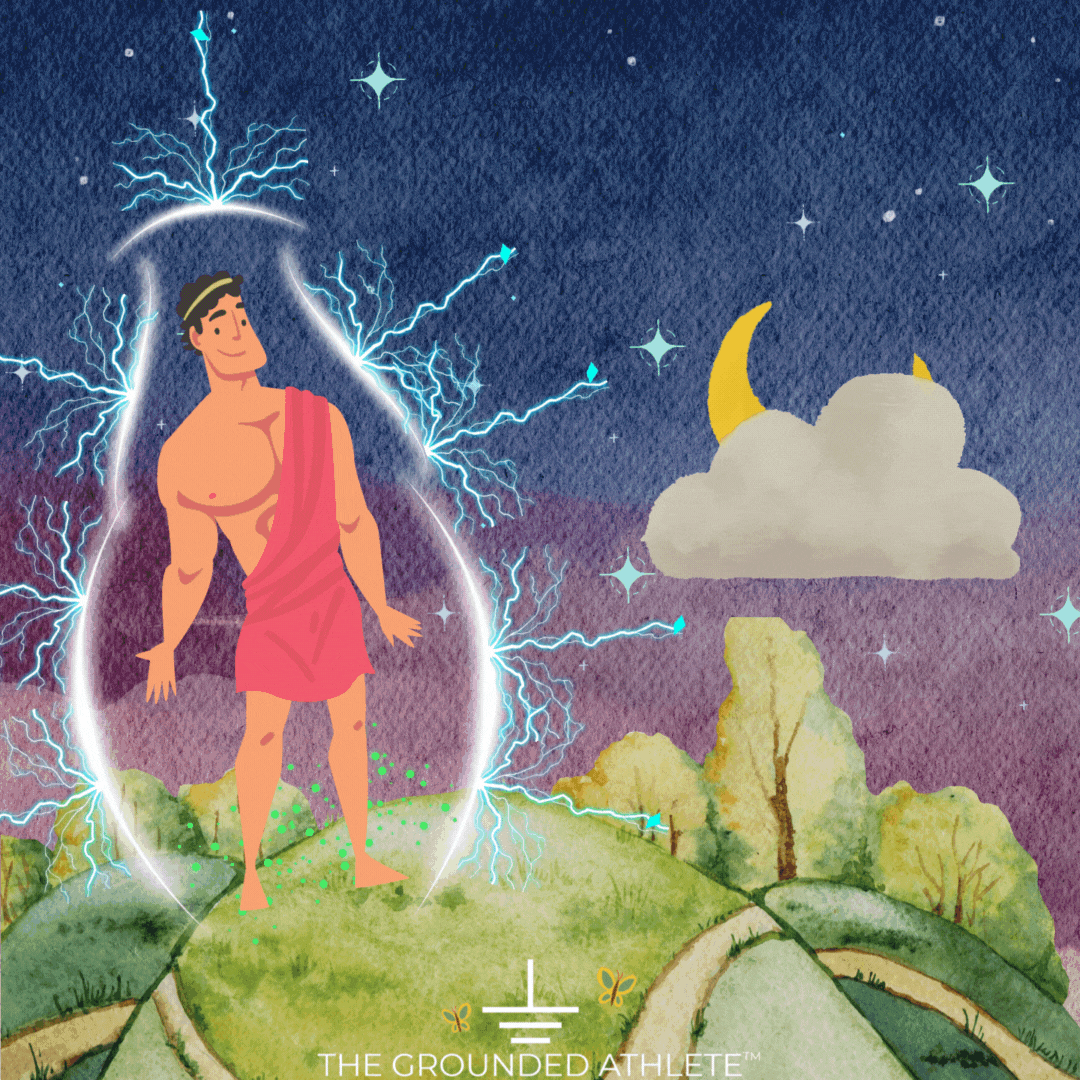Grounding & The Umbrella Effect
When you become an extension of the Earth's electric field through grounding, you connect yourself to a larger network of conductive pathways in the environment. Like roots spreading through the soil, you reach out and intertwine with the world around you, creating a web of interconnected energy that pulses with life.
The Earth's electric field is influenced by the ebb and flow of the natural world, a dance of solar energy, lightning, and the ever-shifting winds. By grounding yourself in this energy, you become a part of this dance, Moving to the rhythm of the Earth and the sky, and finding your place in the grand scheme of things.
The Umbrella Effect is a common topic discussed in the teeny world of grounding knowledge.
Renowned physicist Richard Feynman explained the remarkable "umbrella" effect of grounding the body in his lectures on electromagnetism. When the body is grounded and its potential is in sync with the Earth's electric potential, the body becomes an extension of the planet's colossal electric system. Consequently, the Earth's potential serves as a "working agent" that effectively cancels out, reduces, or deflects electric fields from the body, providing a protective "umbrella" effect.
Further empirical evidence supporting this concept was demonstrated by Applewhite, who monitored the voltage drop across a resistor and documented changes in the ambient voltage induced on the body. The "umbrella effect" was vividly demonstrated, as the body of the grounded individual was shielded from the perturbations of electrons and electrical systems.
However, It is not accurate to say that grounding protects against electromagnetic fields (EMFs) in general, as is claimed frequently.
Grounding is not an effective method for blocking magnetic fields. Magnetic fields are more difficult to shield against than electric fields because they can pass through most materials, including conductive ones. While some materials, such as iron or steel, can redirect magnetic fields, it is difficult to completely block them.


